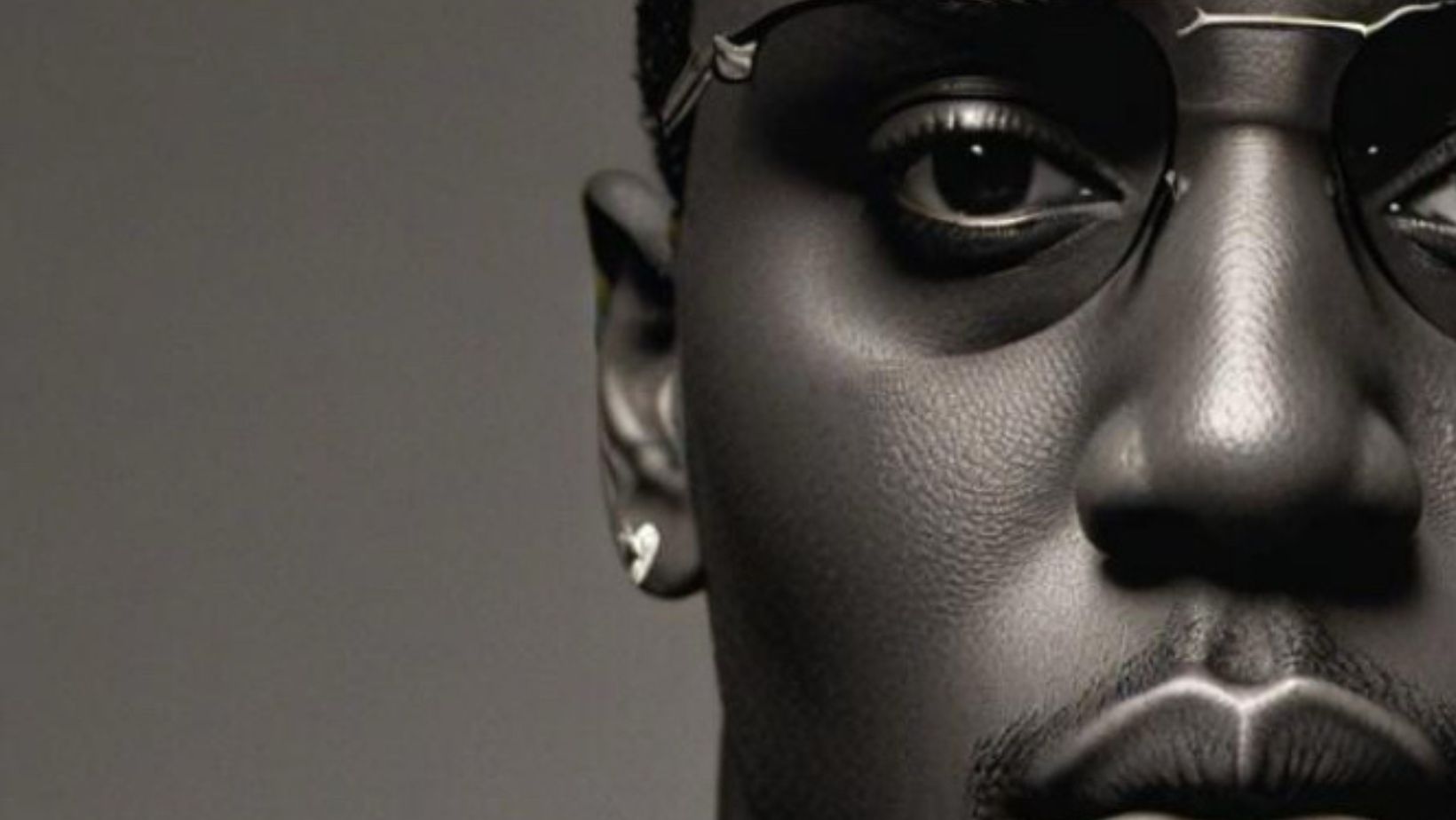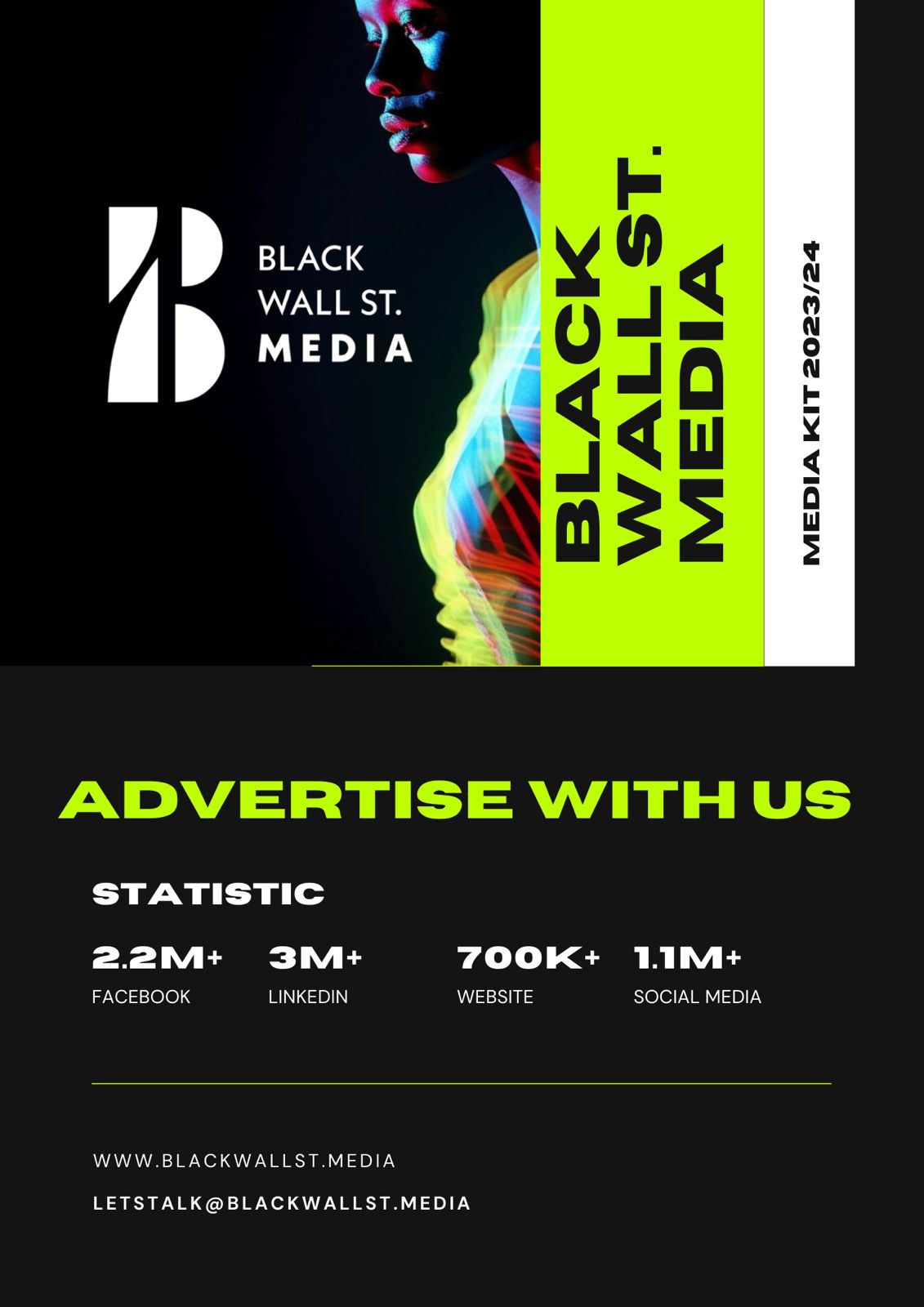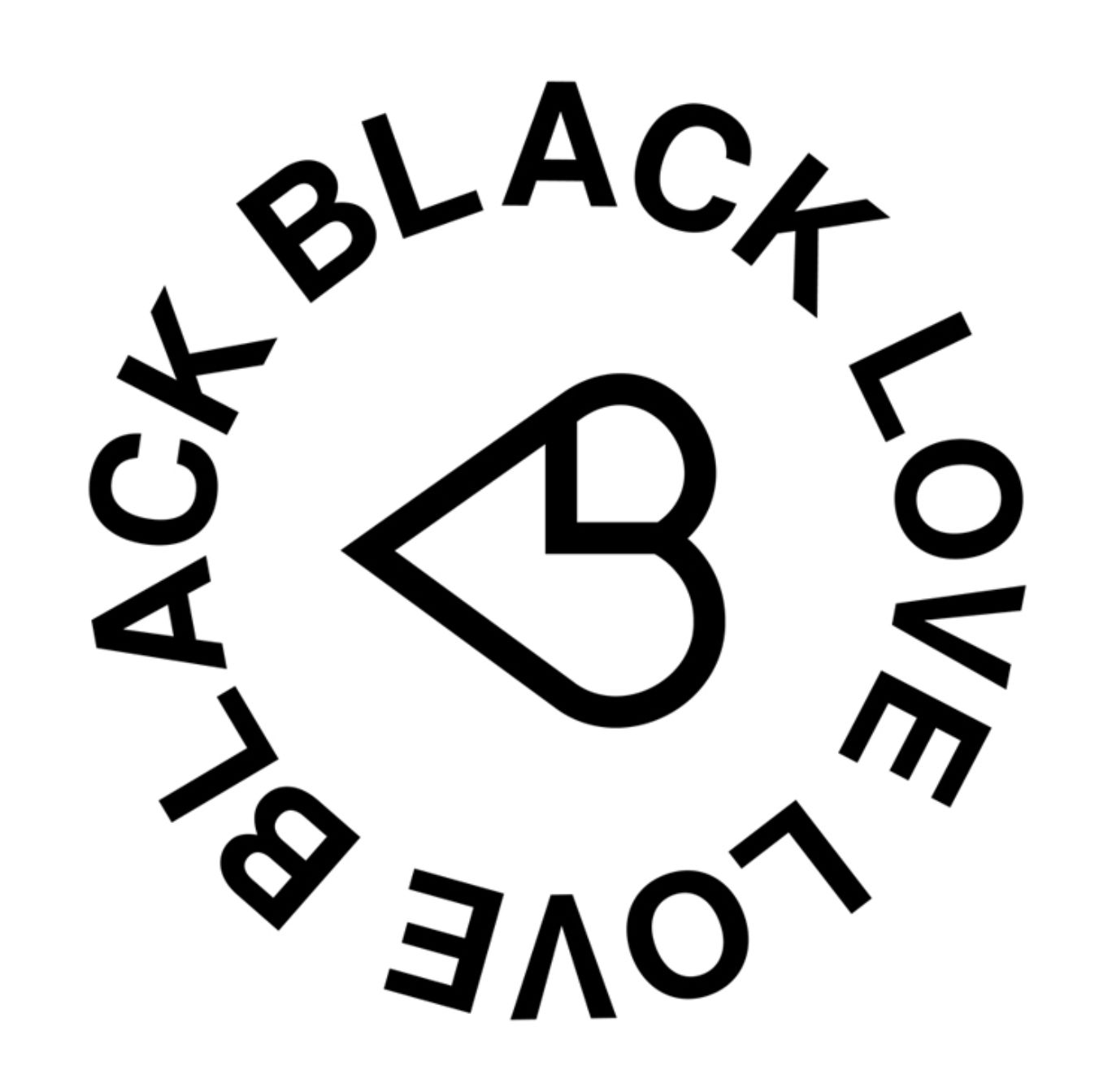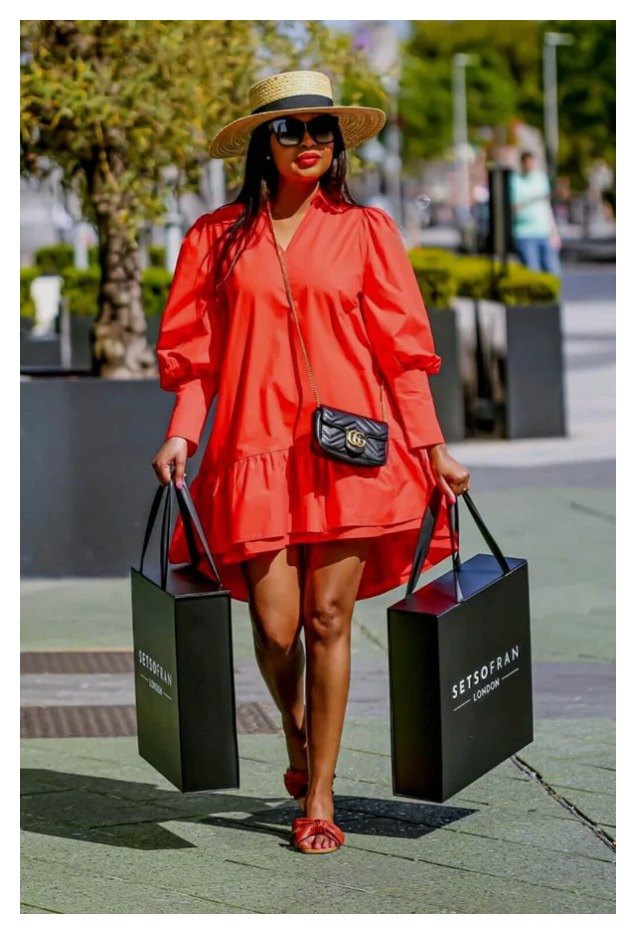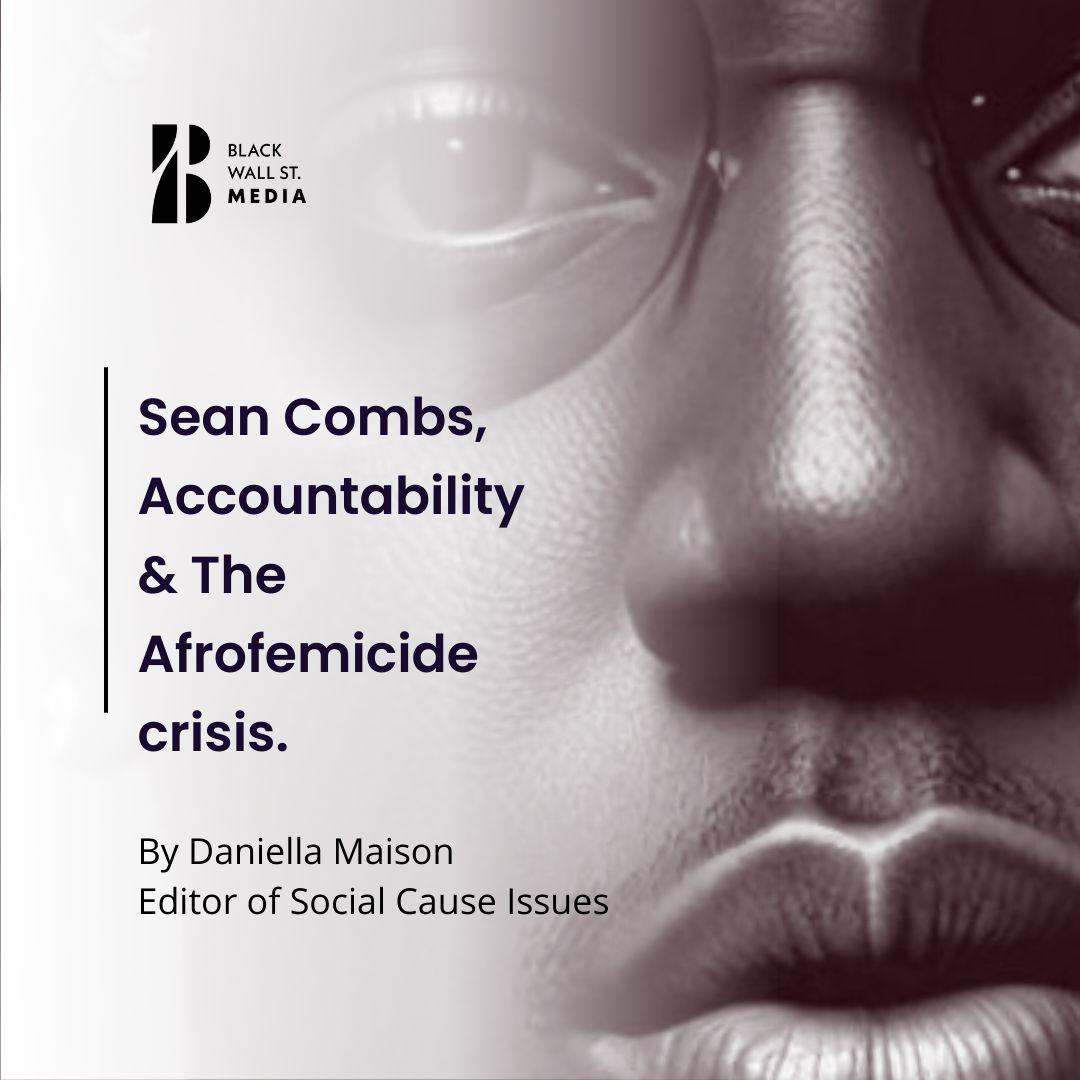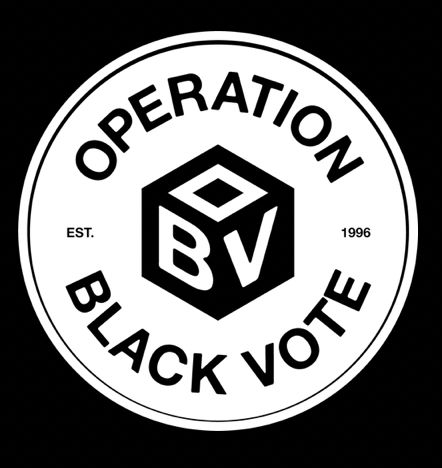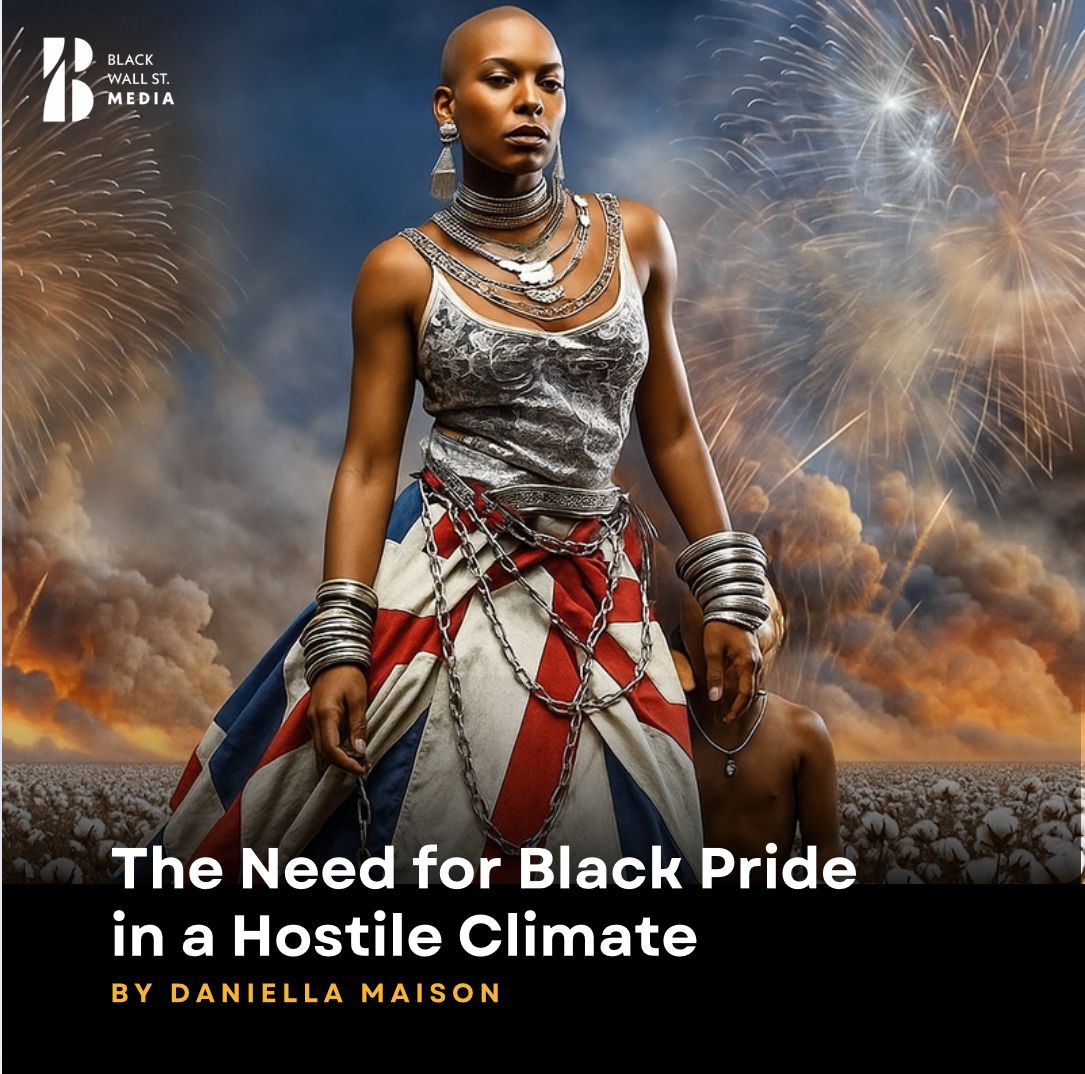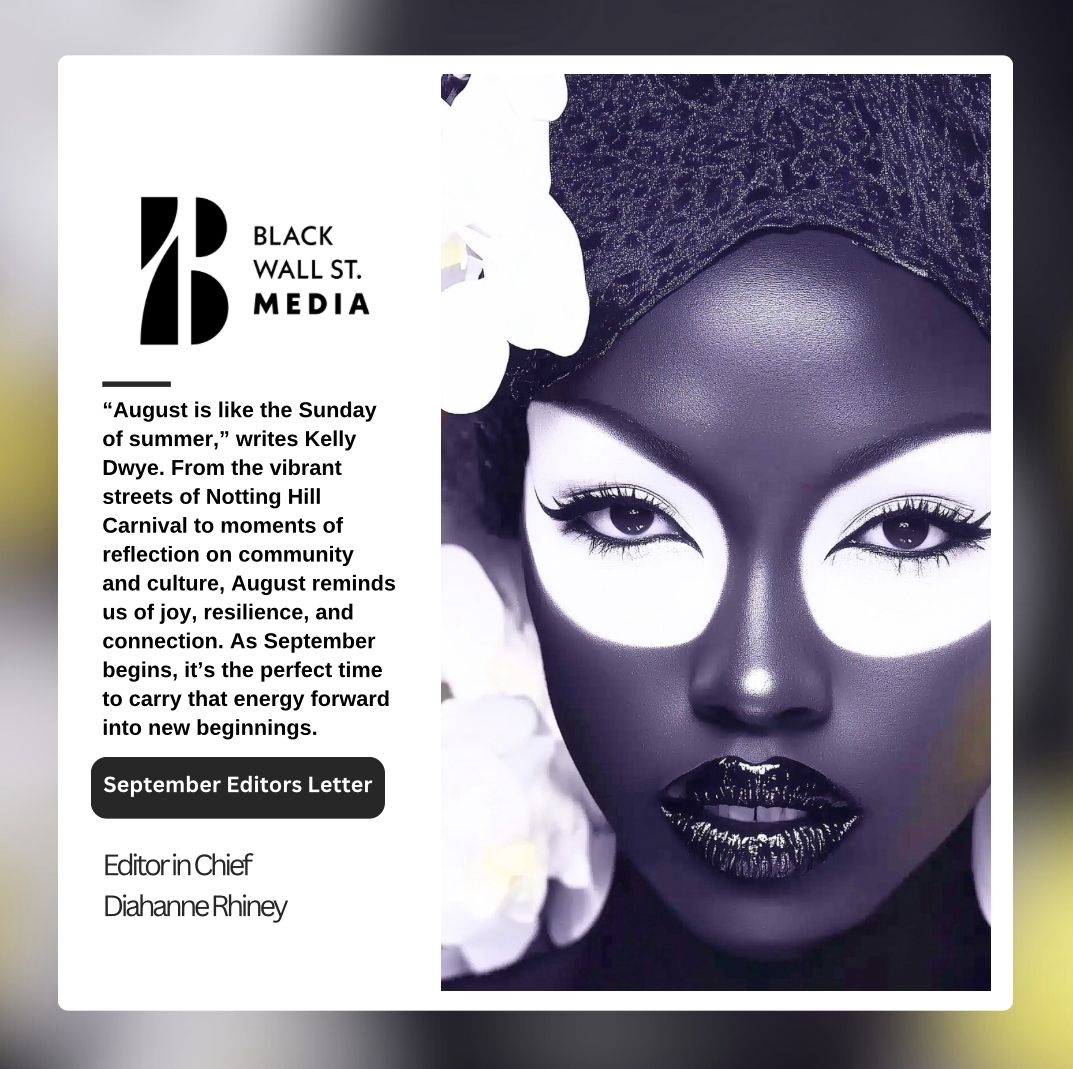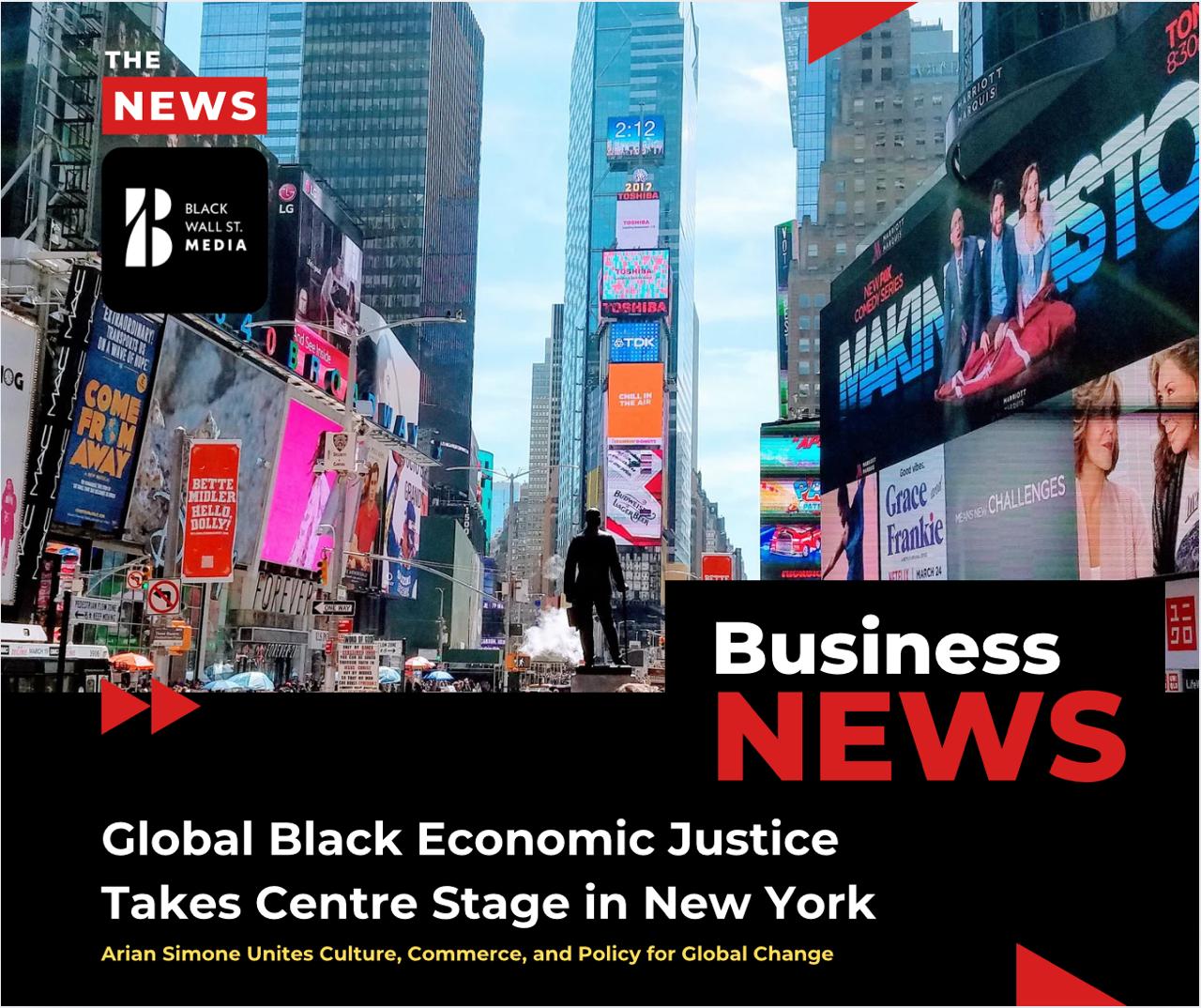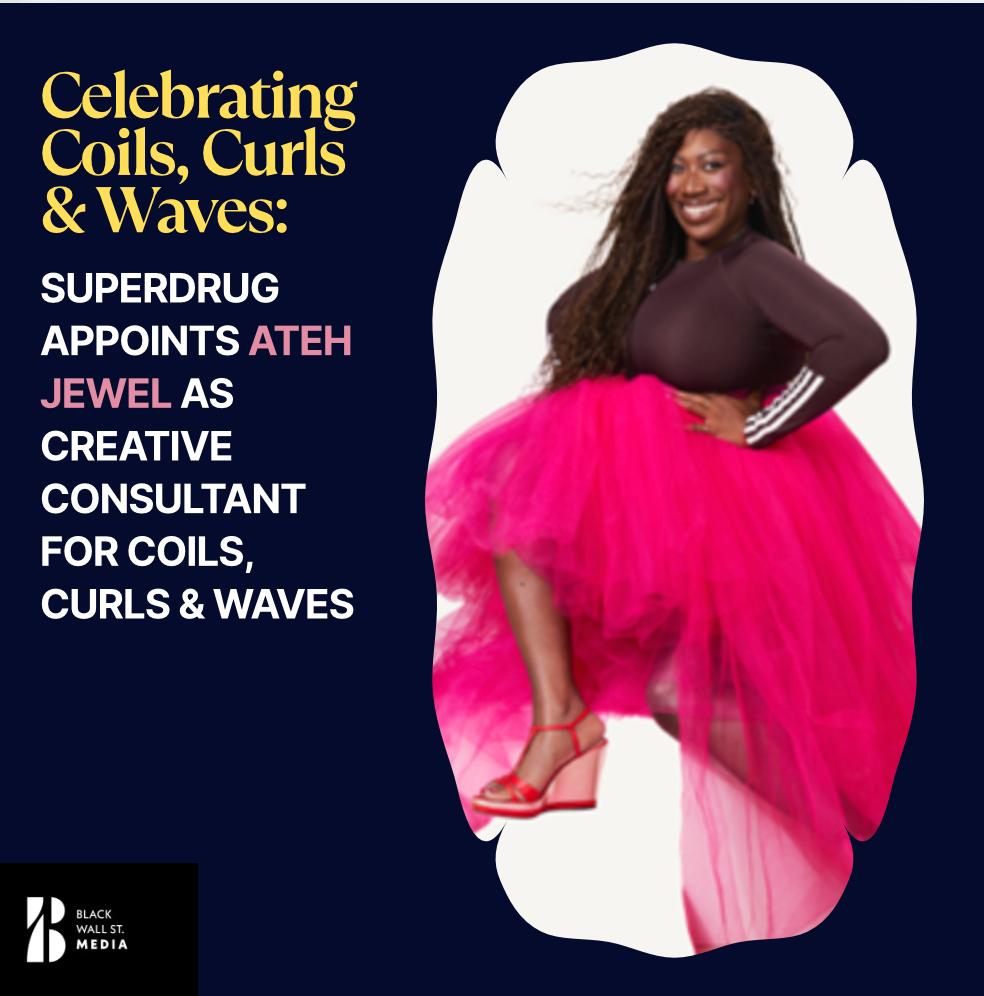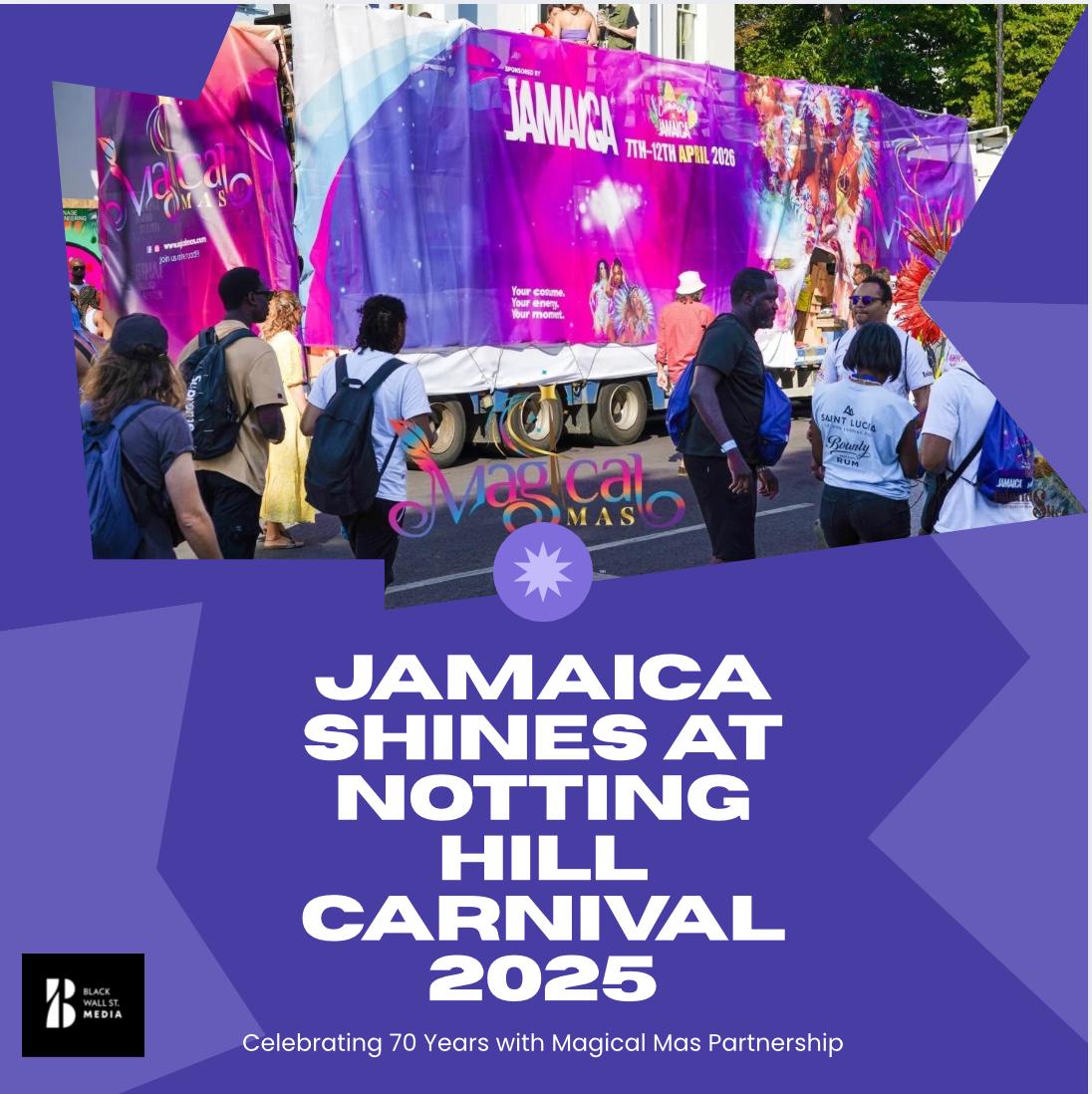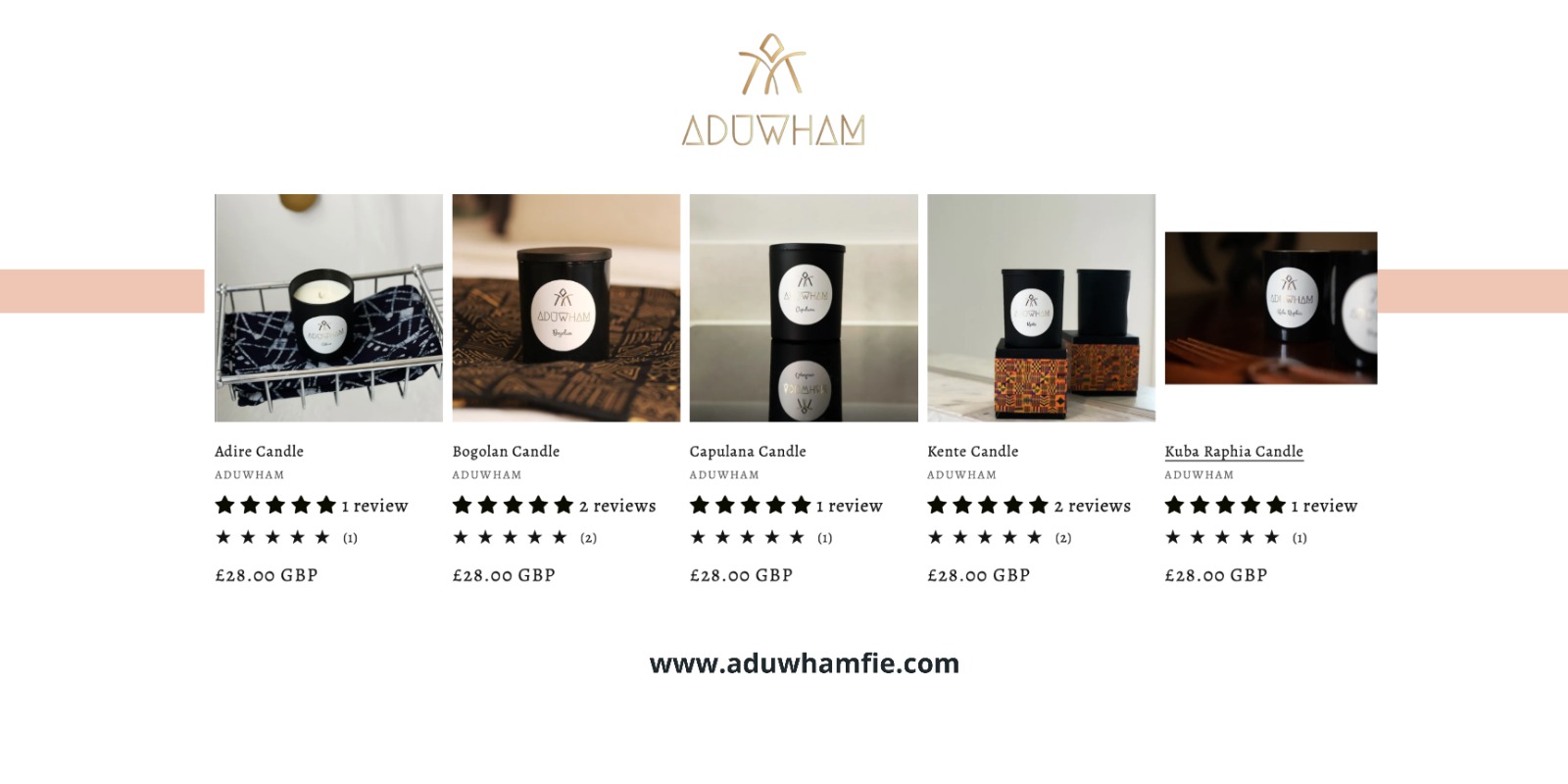Social Justice, Gender-Based Violence, and Racial Justice.
Sean Combs, Accountability & The Afrofemicide crisis.
“In light of the recent revelations about Sean Combs' attack on Cassie Ventura and the ongoing crisis of femicide among Black women, it’s crucial to address the intersection of race, gender, and violence. Our collective action and accountability are needed to challenge the systemic failures and societal biases that perpetuate these injustices. Join the conversation and stand up for justice.”
Daniella MaisonEditor of Social Cause Issues
The litmus test for the collective suspension of belief lies in the palpable response of the masses; be it as the avid perpetrators, enablers, or the indifferent.
It is both action and inaction, which allows an event to occur. Indifference and enablement obstruct accountability, which hinders progress in the labyrinthine issue of abuse and murder.
In 2009, I exposed R. Kelly in an article, and it was met with outrage, protest and even death threats in defence of him.
I was taken right back to this time recently watching footage of Sean Combs’ heinous hotel lobby attack on former partner Casandra “Cassie” Ventura, and the tirade of online comments that questioned why the media was ‘trying to tear the brother down.’
The inactivity element, or, the bystander effect, sees a hotel full of people overhear Cassie’s desperate attempts to escape Sean’s onslaught… and leave their doors firmly closed, and their phones on the receivers.
The hotel staff that Cassie is seen frantically calling for help that night had their silence bought for $50k. Accountability is a key component of change because a perpetrator must be held accountable to his survivor, to their families, communities, and to themselves, in order to recover from their abusive patterns.
Without it, deniability thrives.
Combs defended himself against what he described as “sickening allegations” made by “individuals looking for a quick payday” weeks before the footage was released. Gangsta rappers blame the labels. Harvey Weinstein blamed women, and Donald Trump blamed mutants.
In an executioners firing squad all of the shooters is issued a weapon with one containing a blank cartridge. This allows each of the members of the firing squad to believe that he was not guilty.
In the unsanitary waters of violent misogyny, no single raindrop believes it caused the flood. There is also an apparent reluctance to blame people of our own diaspora for wrongdoings.
This is the case even when the bloodied victim is of our own diaspora. Chris Brown, R.Kelly, Mike Tyson are all examples of men who were defended and enabled whilst their black female victims were blamed or disbelieved.
This is ludicrously paradoxical and shamefully cowardly. This detachment from accountability comes at the expense of black girls being damaged by a realm that lacks fairness.
When they grow into women, they are forced to accept that no matter what a man might do to them, justice will never be served. They learn that they are to blame for their own pain, that their trauma is their own cross to bear.
This multitude of complex issues are what connects Sean Combs attack on Cassie to the present crisis of femicide and Black women.

This week, new figures have revealed that Black women in London are facing a “crisis”, with higher rates of femicide in London than other groups.
Afrofemicide is the term I have coined to demonstrate how gender and race fuse to create specific and intersecting forms of femicide.
Numerous reports examine the myriad of ways in which Black and minoritised women can face barriers and systemic failings when seeking protection from domestic abuse, which often leads them to become victims of ‘preventable’ homicide.
Current reports emphasise that much of the narrative about criminal justice and race demonstrates little focus on the experience of the victim which is affected by racial stereotyping.
This is a significant integrant in the issue of murdered Black women. We live in a time where the stereotypes that are used to wrongfully define and confine us are also used to brutalise and silence us.
Recently, Kelly Rowland made the headlines for what the media described as ‘rage’ in an ‘outburst’ by the media who portrayed her as ‘scolding’ a staff member.
Footage revealed a heavy handed female security guard overzealously ushering Rowland who laid out her boundaries by simply saying ‘don’t talk to me like that.’
These examples are relevant to cases of Afrofemicide because they place the black woman firmly as the aggressor in any given incident. The propaganda behind The ‘Angry Black Woman’ reduces the black female presence to perceptions of being aggressive, angry, mannishly strong, and therefore unworthy of police protection or societal compassion.
This race-gender trope negatively affects the ways Black women and girls are treated and advocated for. Just one of the fallouts it that there is less empathy towards Black female victims of domestic violence or police violence.
Because of this bias, Black female victims are less likely to report their abusers to law enforcement and social services. Much like Cassie, they face victim blaming, shaming, or even accusations that they perpetuated the abusive situation. Far too many women are killed trying to escape their abuser.
Up to 75% of abused women who are murdered are killed after they try to leave their partners.
In every corner of the world femicide is prevalent. Femicide is just now starting to garner its rightful attention. Afrofemicide remains our ‘unspoken epidemic’. In this bloody landscape, the prognosis for black women is especially bleak.
The Femicide Census, a database providing detailed information on women killed in the UK and their perpetrators, has criticised the Met Police and the Mayor of London, saying they “simply don’t care enough” about femicide.
Met Police Commander Kevin Southworth said: “We take violence against women and girls in all its forms extremely seriously.” This sounds good, but it’s hard to forget the smiling faces of Bibaa Henry and Nicole Smallman enjoying a day in a London park shortly before the two sisters were brutally stabbed to death.
Even harder to forget that officer Jaffer, left the post he had been assigned to, to take photos of the bodies like the lynchmen of old. The images were shared with a group of more than 40 officers via WhatsApp who called themselves the “A-team”.
These officers could only leer and joke at these images because they didn’t see these women as human beings.
Harder still to forget cases wherein the police are the bloodthirsty perpetrators of femicide (Sarah Everard) and Afrofemicide (Joy Gardener, Miriam Carey).
Even when the law responds, Black women are subject to worse outcomes in the criminal justice system, when living or dead.
In a recent case of Afrofemicide, Jamie Barrow poured petrol through the letterbox of Fatoumatta Hydara and then stood outside the home to watch the fire take hold, after holding what prosecutors described as a ‘grievance’ over rubbish being left in an alleyway.
Fatoumatta died along with her two small daughters Fatimah and Naeemah Drammeh, aged three and one. Barrow was jailed for life and ordered to serve a minimum of 44 years for the murders before he becomes eligible for parole.
But then the Court of Appeal reduced his sentence to 38 years. In the ruling, the judges said that the original sentence was “manifestly excessive in the circumstances of this case”.
Even the post-death investigatory process and subsequent media reporting is biased. There is no reconciliation without truth. To prevent femicide, it is crucial that national authorities record comprehensive data on victims.
The proof is in the pudding, and we need solid numbers. The media tells us that two women are killed every week ‘on average’ in the U.K. The Femicide Census shows that a woman has been killed by a man, on average, once every 3 days, over a 10-year period.
There is a difference. Numbers matter because in this instance these aren’t simply numbers; each number represents a real human being.
The limited visibility of femicide in general, and Afrofemicide specifically, in national policies highlights the urgent need for recognising femicide as a separate criminal offence.
Latin America and the Caribbean have some of the highest rates of hate killings of girls and women. In response, 18 of the 33 countries in that region have created new legislation classifying femicide as a distinct hate crime. There is no definition of femicide in UK criminal law.
Patriarchal structures must be subverted and mind frames must be challenged. When music, cinema and culture tell our young boys that it’s acceptable to mistreat, insult, and control women, a significant portion grow into men with warped ideas about women.
Tolerance of misogynistic rap lyrics give men a licence to abuse women. When R. Kelly renamed himself Pied Piper after a fictional man who lured 130 children into his cave with his music whilst he was doing exactly that… we were too busy Stepping In The Name Of Love to listen to what he was telling us. Men like Sean Combs beat women in public because they believe they can. Men kill women because they believe that they can.
The question is, why is the value of a black woman’s life so obsolete, that we are being eliminated at record rates and the government has barely blinked? Preventing and tackling femicide demands a multilayered approach.
These layers include vigorous preventive measures, sturdy support systems, and political commitment.
The headlines scream ‘Black women at greater risk for lethal violence than others’ and as we die in droves, it’s time we were heard, it’s time we were believed and counted. So that these who have died shall not have died in vain, and that lives may be saved, not wasted.
“”
Daniella MaisonEditor of Social Cause Issues

